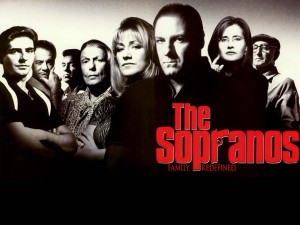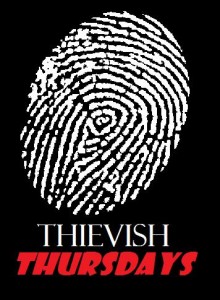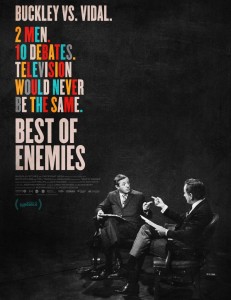 From the first episode, The Straits has been compared to David Chase‘s landmark HBO series The Sopranos. It’s easy to see where the comparisons come from. Even the opening theme sounds very similar to Alabama 3’s “Woke Up This Morning”. Family structures are also similar with a focus on the domestic relationship against the criminally nefarious activities that support them. However, the comparisons may as well finish now, as there is a big difference between the actual relationships between characters. While the Montebello clan are very connected in what the actual family business is, and continue to become familiarized with the criminal activities as the series develops, the Sopranos are a different kettle of fish.
From the first episode, The Straits has been compared to David Chase‘s landmark HBO series The Sopranos. It’s easy to see where the comparisons come from. Even the opening theme sounds very similar to Alabama 3’s “Woke Up This Morning”. Family structures are also similar with a focus on the domestic relationship against the criminally nefarious activities that support them. However, the comparisons may as well finish now, as there is a big difference between the actual relationships between characters. While the Montebello clan are very connected in what the actual family business is, and continue to become familiarized with the criminal activities as the series develops, the Sopranos are a different kettle of fish.
Instantly from the first moment of the first episode, we find Tony Soprano (James Gandolfini) in a psychiatrist’s office. His placement is awkward and out of place, and it is clear that he is wondering why he is there. His mental stability is a continuing aspect throughout the series where guilt, paranoia, anxieties and neuroses dominate his ability to complete the required tasks of the mafia job. Carmela (Edie Falco), his wife, does not learn of his treatment until it is well under way, detailing a very clear divide. His children are kept out of the loop too, especially regarding the family business. Their age deems this appropriate, as they are much younger than the Montebello children, but it doesn’t take long for the children to find and extort and bribe.
Tony has a divide between his home life, including the crippling relationship with his over bearing and catatonic mother Livia (Nancy Marchand), and his work life. They are two families that often blend, although not always in the ways Tony would prefer.
The Sopranos marked a new dawn in television writing. Each episode seemed to be of the quality you’d come to expect in a feature film. Instead of hearing to the televisual aesthetics of quick turnover with many important sacrifices made to the detriment of the show, The Sopranos is more accurately described as a 13 hour movie spread over 13 weeks. Running over six seasons, 86 episodes were aired on HBO from the pilot in 1999 to the series finale 2006.
Much has been made of the finale sequence and its ambiguities and led the discussion for potentials of another series, or a movie. It’s interesting how many series have this post-series movie mentioned. Have their actually been any series in general that have A) had a theatrical release after the series finished, and B) been critically and commercially successful?
Quality is a word closely associated with The Sopranos, and anyone who has sat through the entire series can vouch for this in many a hyperbolic synonym. David Chase stepped up our expectations of what we now demand on television and as a result, many writers were given the opportunities to explore a range of interesting and well written subject matter. The late 90s and early 2000s were a period of change for television with shows such as Sex and the City and The Sopranos leading the way for Dexter, Weeds, The Wire, Six Feet Under and scores more of compelling television series. Several accomplished writers and directors made a name for themselves with The Sopranos including Mad Men creator Matthew Weiner and Boardwalk Empire creator Terence Winter.
Superb characters were matched by absolutely brilliant and enthralling performances from a group of insanely talented actors. James Gandolfini blew apart the screen as mob boss Tony and became the fodder for many discussions of what it meant to be a dominating male in a tough business, suffering from many shortcomings. Lorraine Bracco gave a continually restrained performance as Tony’s therapist, who also got a chance (although not often) to display emotion, letting down her guard. Nancy Marchand enjoyed two seasons as Soprano matriarch Livia, displaying manipulation as an art form. Tony’s kids only became more interesting and complex as they aged, thanks to the abilities of Jamie-Lynn Sigler and Robert Iler. The other family were a constant source of enjoyment with Michael Imperioli as Christopher, Drea de Matteo as Adriana, Dominic Chianese as Uncle Junior, Tony Sirico as Paulie, and Steve van Zant as Silvio.
However, my favourite performer by far was the astoundingly skilled Edie Falco. Carmella’s character arc extended so far, giving Falco opportunities to be angry, loving, in love, distraught, conflicted, emotionally wounded, and always painfully human. Her shining moment came in the hospital in season 6 after hearing that Tony might not live. The clip below shows one of the best on-screen breakdowns I’ve seen to date and highlights Falco’s impressive abilities.
Many more words could be written about the series that changed the face of television as we know it today. Some might say that such a branding is a tad extreme. However, it seems the only appropriate way to describe the truth: that The Sopranos was, is, and always will be one of the most captivating and entertaining series to screen on television.







2 Comments